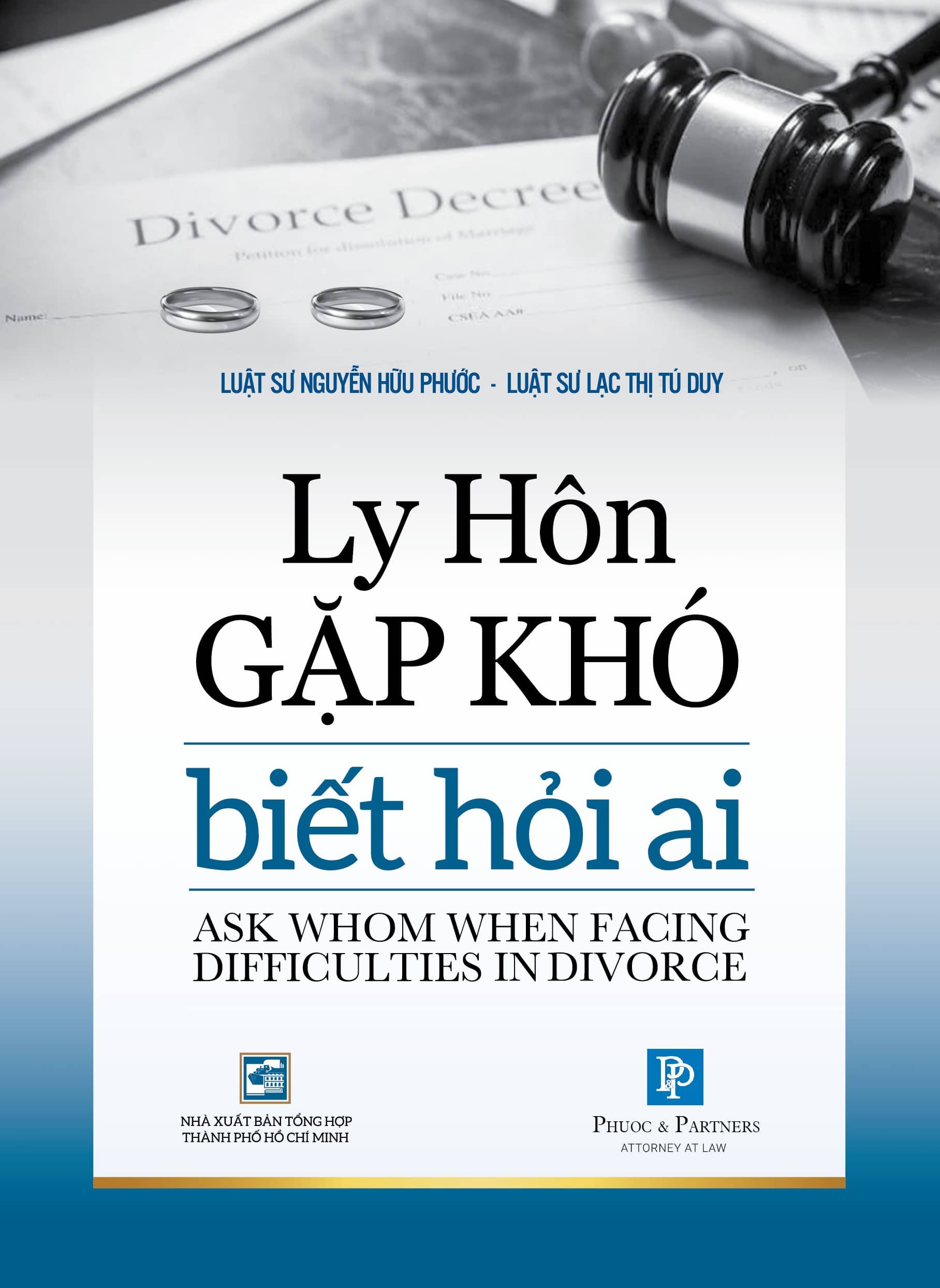Under the applicable law, during the process of resolving a divorce case in the Court, either spouse may authorise his or her own lawyer, or a person or organisation to carry relevant works for some particular issues. As mentioned in the previous question, there are three kinds of requests in a divorce case that the spouses may submit to the Court: the divorce request, the request for division of common properties of the spouses and the request for child custody or support.
In respect of such issues, Article 85.4 of the Civil Proceedings Code 2015 states that: “In cases of divorce, the spouses are not permitted to authorise another person to participate on their behalf in the proceedings.”
However, there are still many opinions on how a “divorce matter” should be understood, which decides whether an authorisation scope is allowed[2].
According to the first point of view, in a divorce case, either spouse may assign his or her respective right to a third party as long as this right is not a personal right in marriage[5] (right to request for divorce, child custody and support). Personal rights are civil rights which are attached to each person and are thus unable to be assigned [6]. Therefore, in principle, both spouses in a divorce case cannot authorise a third party to act on his or her behalf during the proceedings at the Court, they must exercise this right by themselves. Hence, the spouse can assign the right to request for property division to a third party as it is not a personal right.
As for the second point of view, there are only 03 kinds of requests in a divorce case as mentioned above and the law does not specify what a divorce matter is. Thus, one could consider the right to request for property division to be within the scope of the divorce matters. Therefore, such right cannot be assigned to a third party.
The fact that Courts may have different understanding of the same issue illustrates the need for a guideline from the Supreme Court, giving detailed instruction on such issues for a unified implemention. The authors’ opinion inclines towards the first understanding. There is no debate as to whether the right to request for child custody/support can be assigned because it falls into the category of personal rights. However, it would be very unreasonable if the right to request for property division could be assigned in order to act on the behalf of someone. The reason is that if either spouse requests for property division in a separate lawsuit instead of requesting the division at the time of their divorce, their property division may be treated distinctively. For example, the right to request for property division being assigned as such request is not included in the divorce matter. Hence, it would be inadequate as the nature of the issue is similar but the solution is different. Therefore, if either spouse really wishes to authorise his or her lawyer to act on his or her behalf in resolving matters related to their properties, he or she may authorise his or her lawyer to act in a separate lawsuit from that of their divorce. In fact, most Courts choose this approach.
In addition to two popular understandings as mentioned above, the phrase “a divorce matter” is also understood as if the forbiddance only applies to divorce matters, but not to divorce cases. According to this understanding, the law only forbids the authorisation in any divorce matter rather than a divorce case.
Either spouse may authorise a lawyer, a person or an organisation to act on his or her behalf when submitting the divorce petition and in relevant procedures such as supplementing documents, paying advance Court fees, etc. until their divorce request is accepted by the Court.
In conclusion, whether a spouse can
authorise a person to act on his or her behalf in a divorce affair depends on which right he
or she wishes to assign in the authorisation. Either spouse can only authorise
a person to submit the divorce petition and attend procedural activities
regarding the property division, but not for matters related to divorce
requests or child custody/support because these are personal
rights as analysed above.
[2] Tran Thi Thuy, “How authorization to attend the proceedings in a divorce case should be understood?” Skill Exchange, Legal Aid Center of Hai Phong City, 09/08/2017, http://www.haiphong.gov.vn/Portal/Detail.aspx?Organization=tttgpl&MenuID=8039&ContentID=124171.
[5] Article 39 of the Civil Code 2015.
[6] Article 25.1, 39 of the Civil Code 2015.
If you would like more information on how we can assist you with divorce issues, please contact us at: +84 (28) 36223522 or email us at info@phuoc-partner.com

